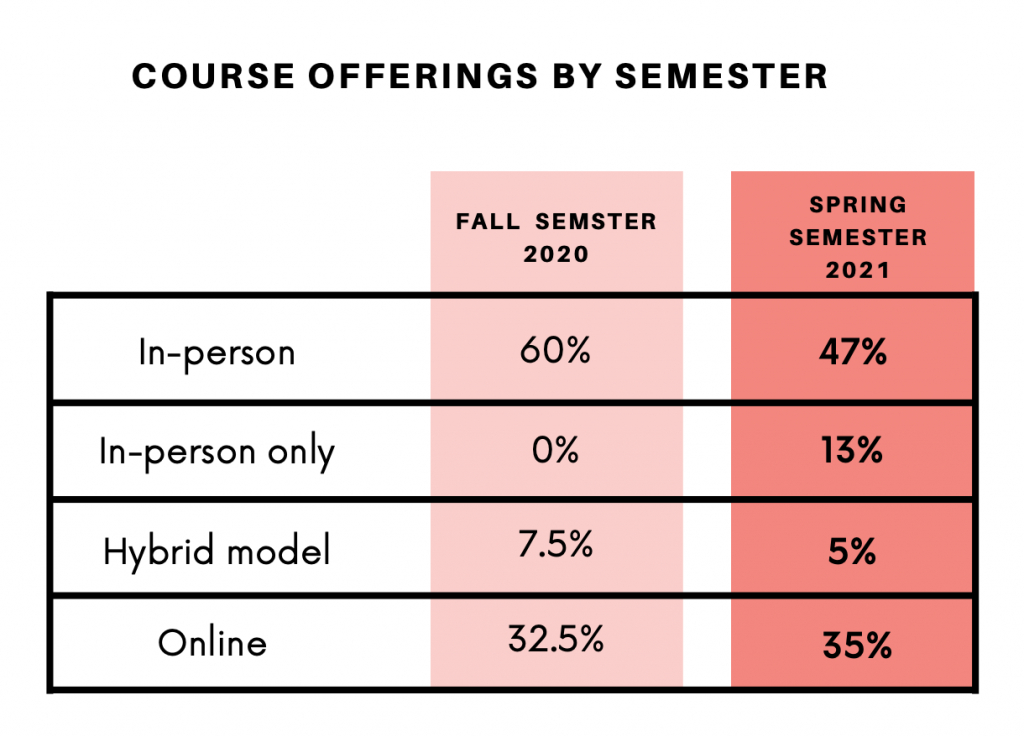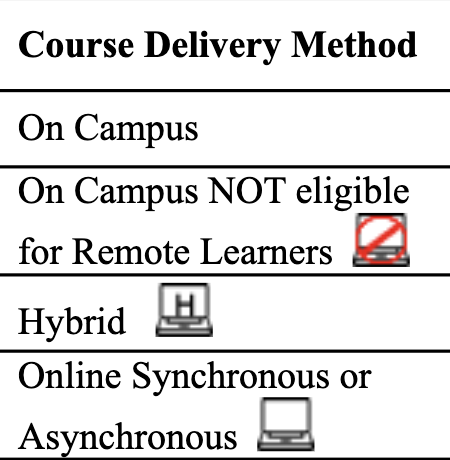
Unlike registration for the fall semester, students are now able to see how their courses will be delivered before the advising and registration process.
With academic advising beginning Nov. 9, advisers are taking the opportunity to make sure students understand the new process and consider the pros and cons of taking online courses.
According to a university email sent out this week, 47 percent of Bradley’s spring 2021 semester courses will be offered in-person and will accommodate remote learners, down from 60 percent this semester.
Thirteen percent of classes for the spring semester are in-person only, meaning students cannot opt for virtual learning. This is a change from this fall, where students could take any class remotely. Five percent of classes, compared to 7.5 percent during the fall, will be hybrid, meaning the class is divided into groups and each is in-person on certain weekdays.
Thirty-five percent, similar to 32.5 percent in the fall, will be synchronously or asynchronously offered completely online.

Students will also be given until 5 p.m. on Jan. 15 to consider whether or not to apply for remote learning through Webster. Academic advising will continue into next week, with early registration beginning Nov. 12.
To accommodate students, assistant professor of animation and academic adviser Brent Wiley said he’s doing away with his usual pre-filled course list suggestions when meeting with his students.
“This semester, we’re going for a more granular approach,” Wiley said. “I think that’s best instead of trying to prescribe a list; we allow them some flexibility as well as discussion as to what they would like to accomplish for the semester. I think this will be better in the end.”
Wiley said he is also recommending students taking extra time to think about their schedules, and which courses they would be able to handle online.
“Generally, online courses tend to be more demanding,” Wiley said. “I would advise students to try not to increase their loads. If your course plan is 16 hours, you probably should stick with that amount unless you’re very confident.”
Freshman nursing major TJ Subang agrees, but he doesn’t feel like he has much freedom when it comes to choosing courses. He said a lot of his required classes for freshman nursing, including biology, chemistry, medical terminology and nutrition, are only offered online.
“I find [online classes] difficult because not a lot is holding me accountable,” Subang said. “Asynchronous classes that basically just present me with slideshows or just reading from my textbook are really hard for me to find motivation in.”
In the opposite way, some students’ schedules require them to attend in-person classes. Within the department of nursing, five of the 20 courses are not eligible for remote learning: Introduction to Medical-Surgical Nursing, Community Health Nursing and each of the three practicums.
Some departments, including the department of world languages and cultures, are offering courses that could all be taken remotely in the spring.
Alexander Heirtch, department chair and professor of French, said this flexibility is important, as the pandemic has shown that situations for individuals and situations at the state level can change at any time.
“It is important to have a plan, it is good to have a plan, but I think this has all taught us about being flexible and being able to make changes as necessary and also to, hopefully, relax a little bit,” Heirtch said. “There are some things that are out of our control, and we will deal with them as they come.”




